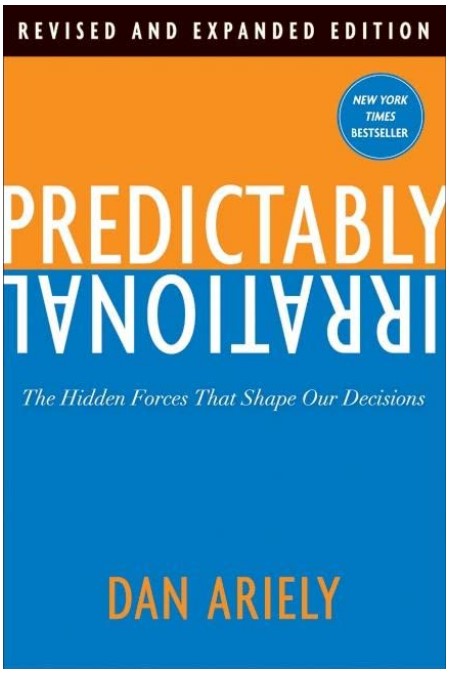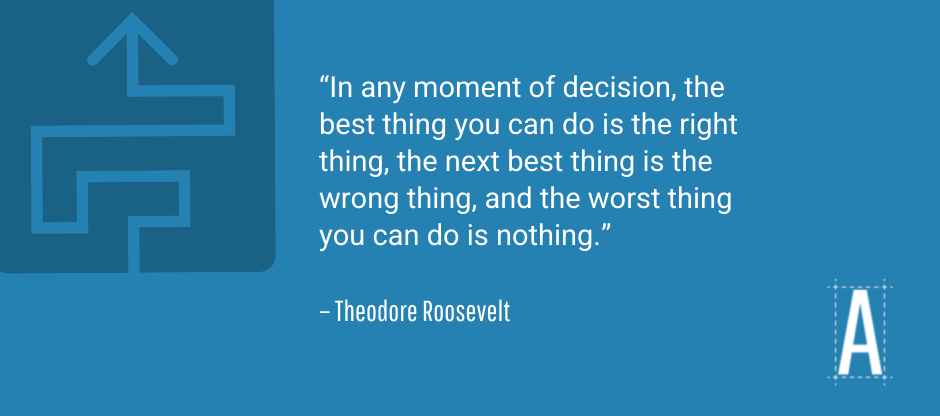We Make Our Choices and Then Our Choices Make Us
Chip Brackley | July 27 2020
What is financial success? Is it having a lot of money, being able to buy what you want, having the money to travel or something else?
After helping hundreds of people with their finances I can tell you that everyone has a different answer, but no matter how you break it down there are a few things that are always consistent.
Whether we are talking about finances or some other area of life, successful people know what they want. They have a mission, goals and a game plan to get it. Here’s what is important… Success lies more in our actions and our decisions than it does in our mission and intentions.
Let’s dig in a little further:
“Why do some people achieve financial success and others don’t?”
The answer starts here
I think it starts with one word… COMPOUNDING. I know, I know, you expect a financial guy to talk about compounding, but I don’t want to talk about compounding in regards to investments and interest earned. I want to talk about it in a different context. I want to talk about it in the context of your decisions. You see, your decisions and actions have a much stronger pull on the direction of your life than do your goals or your mission. As someone once said, “direction, not intention determines your destination”.
I may have a goal to save $1 million by the time I’m 40. If I start by buying a lake house and two really nice cars, that goal gets harder and harder to reach and further and further away.
But you can’t have one without the other:
If you don’t have a mission in life or a goal that you are trying to achieve, then none of this matters anyway. It’s like running a race with no finish line. You get up to the starting line, the gun goes off and you start running your heart out with no end in sight. Talk about stressful.
If you don’t have a finish line in place, you’ll never know how you’re doing, or when you can stop running. You won’t have anything to gauge your choices against. You won’t be able to answer the simplest question, “Did this get me closer to my target?”. Every choice or decision compounds one way or another and leads to achievement or failure. That’s why we set financial goals in the first place… If you have a goal, a target, a direction then you can put a plan together and start making decisions based on that plan.
It’s about starting with the end game in mind. You will never be content financially if you can’t answer the question, “how much is enough?” The reason is, you will never know if you have reached the finish line… you’ll always feel like you need to keep running.
The right actions and the right plan executed over time is the secret to driving results.
Ready for financial success? Harness this secret
That’s why you need to know your mission and need to write down your goals. If your goal is to retire at 62, then you can know how much you need to save. If someone tells you, you need $3 million to retire at 62, you can figure out how much you need to save and how much you need to earn to get there. You will know where you need to adjust your financial habits. Add here, cut there, repeat. All of your decisions now can be focused on getting to $3 million. Compounding can start working for you.
What about your work life?
Think about it from a business standpoint… You own your own business, or you are running a division of a company. The decisions you make daily will decide whether you are going to be successful or not. Your personal life is not a business, but the decisions you make are no different than the business decisions you make. The assets you invest in and the expenses you take on are directly related to the long-run viability of Your Family Company, Inc.
Your success or failure rarely is dictated by a one-off decision. Your success or failure is dictated by a series of decisions that you make over months or years. In the business world, you don’t just start making decisions and sort of “wing it”, you have a mapped out plan for the next three to five years. That’s what successful business people do… they use the power of compounding in their favor. So… if you run your business this way, why would you run your financial life any other way?
Whether your decisions are big or small, they are all important and require attention.
Let me get real personal and tell you how works in my own life… So, for me and my family, we have 4 main goals from a financial standpoint. We have very specific numbers tied to these but let me be vague here for the sake of time. Our goals are:
1. Give away a certain percentage of our income
2. Build liquidity for our long-term goals
3. Payoff our mortgage
4. Keep our three daughters in the school where they are currently
We run pretty much any financial decision we have through the filter of, “will this move us closer or further away from these four goals?” That’s the beauty of knowing your mission, of knowing what’s important to you, it allows you to run decisions through the prism of “Does this hurt or help? Will this have a positive or negative compounding effect?”
You see, there are no independent financial decisions. There are limited resources and unlimited options, so each dollar spent is going to be a dollar that can’t be directed somewhere else.
And guess what? It’s okay if you make decisions that have a negative effect on your goals. That does happen. Those decisions will be made over time but at least you know what’s happening and you can decide it’s worth it or choose to change.
How does this apply to you?
Each of us must take some time and figure out what’s important to us. Focus on starting with the end game in mind. Spend some time and figure out… What are the three or four things that you are trying to achieve? These are going to be true north of your non-negotiables. Every decision you make needs to be directed towards achieving these goals… your mission.
Here’s why this is so important
Your level of success today hinges on what you did days, weeks, months and years ago. Imagine if you’d done this at 15, at 25 or any time before the age of 30? How much further along would you have been? By focusing on the compounding of your daily decisions, you can better ensure that who you are tomorrow is proud of the decisions you made today!
Large decisions are the ones we tend to focus on, but it’s the small decisions that drive our direction. If we know where we are headed, then the compounding power of our decisions can have a hugely positive effect on where we end up tomorrow. If not, every decision we make brings us farther away from our true North.
Ready to see how you stack up? Get started today, by better understanding your risk tolerance level and how that fits with the investments you currently hold.
What little things that are holding you back and what is your plan for attacking them?
Disclaimer: Our intent in providing this material is purely for informational purposes, as of the date hereof, and may be subject to change without notice. This article does not intend to constitute accounting, legal, tax, or other professional advice. Visitors and readers should not act upon the content or information found here without first seeking appropriate advice from a trusted accountant, financial planner, lawyer or other professional.
Join us:






